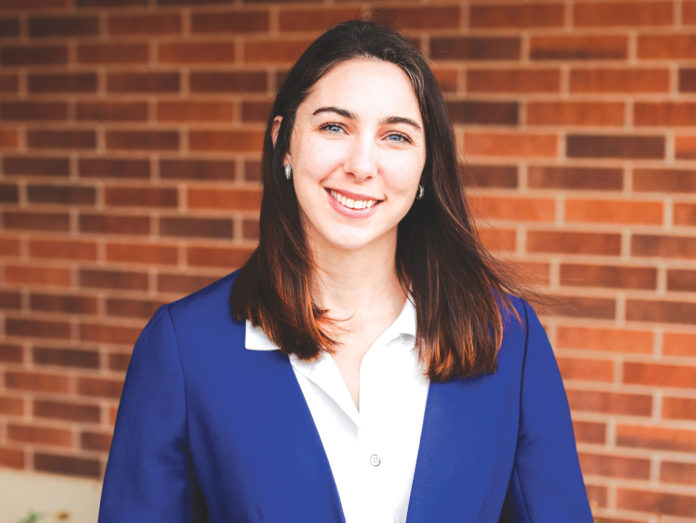
by Van Mitchell, OKNT writer
Dr. Casey Cassidy knows first-hand how the experience of one summer camp can help forge a drive towards a particular career path.
“I was always fascinated with anatomy,” said Cassidy, PhD, RN, CMSRN, CHSE, Interim Assistant Dean, Director of Meinders Simulation Center, and Associate Professor Kramer School of Nursing at Oklahoma City University. “I had some really influential high school teachers that just loved science. I actually attended a summer camp that explored the different health professions. When I did the nursing portion of it, I thought this was for me.”
Cassidy was part of Camp Kramer Way, a summer nursing camp for high school students, held at OCU this summer.
“It went really well, and we got great feedback from all the campers,” she said. “I think the whole concept was exploring and encouraging them to see if nursing is a good fit, because it is a big investment to do that.”
Cassidy has been full-time faculty with KSN since 2018 and became the Director of the Meinders Simulation Center in 2019. Before coming to KSN, she was a faculty at Southern Nazarene University and Oklahoma State University-Oklahoma City. Her clinical practice was at Mercy Hospital Oklahoma City on the medical-surgical and step-down units.
Cassidy earned her Ph.D. in Nursing from Oklahoma City University; her MSN from Oklahoma Baptist University; her BSN degree from East Central University. She is a Certified Healthcare Simulation Educator. (story continues below)
Cassidy was also a National League for Nursing’s (NLN) 2019 Leadership Development for Simulation Educators Participant, Great 100 Nurses of Oklahoma in 2014, and Academic Excellence PhD Student at Oklahoma City University in 2018.
Cassidy said as she advanced her career, teaching became a natural fit for her.
“It was during my clinical practice in medical/surgical nursing,” she said. “After I started working, I began precepting new graduates. I was training new hires, and the new hires are with you for weeks, one-on-one mentoring, and I really fell in love with that mentoring relationship. That started my journey into teaching.”
Cassidy said using simulation in her teaching helps her students become more well-rounded.
“I first became interested in simulation because my teaching philosophy and strategies are very active in the classroom,” she said. “I stumbled across simulation as a strategy, and the more I started researching and doing it, I just really fell in love with that. I pursued certification in it, and more leadership in leading the Simulation Center as a whole.”
She continued, “I have talked to a lot of students, and they really love simulation. It is active. It is hands-on. It is really letting them practice to the fullest of their ability in a very safe way. The students do not have the same restrictions in simulation as they do in clinical, such as contacting healthcare providers and administering blood. They are able to put those skills into play, and get feedback from faculty. They feel more confident not only about their future studies, but when they graduate and put those skills to work.”
Camp participants at Camp Kramer Way got hands-on learning through Oculus 2 virtual reality headsets that allowed them to learn about anatomy through a computer program.
This fall, OCU nursing students will begin utilizing them.
“We are exploring many different ways to use it in each program,” Cassidy said.
Cassidy wears many hats at OCU, including serving as Interim Assistant Dean for OCU’s Kramer School of Nursing.
“It is a little bit of everything,” she said of her new role. “I do a lot with accreditation and that involves making data-formed decisions based on our student learning outcomes, and various resources at the university ensuring we provide high quality education. I also work through different initiatives with grants. It has been an adventure because this is the first time for me to really step into any type of role like this, but I have really enjoyed it.”
Cassidy said Oklahoma City University’s Kramer School of Nursing was awarded a grant to implement an initiative intended to increase Latino representation in the healthcare industry.
Funds provided through the $37,000 Telligen Community Initiative grant will be used to expand academic support for Latino/a/x students in the nursing program, with the goal of retaining and graduating more Latino nurses to enter the workforce in Oklahoma.
Cassidy said she likes to spend her downtime with her husband, and two children.
“During COVID, we decided to hit all the state parks with our kids,” she said. “Every year we try to go to a few new state parks, and just be out in nature.”
For more information on OCU’s Kramer School of Nursing, visit: https://www.okcu.edu/nursing/home












